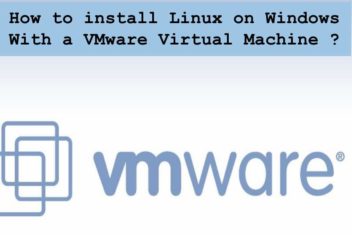There are different types of proxies with distinct features that make them ideal for specific uses. Data center proxies are the most popular type of proxies because they are efficient in offering online privacy for both personal use and business needs.
The overall performance, however, differs depending on the company that provides the proxy IPs. You, therefore, need to know what you are looking for before acquiring them.
If you have been trying to compare residential proxies vs datacenters, or simply learn about datacenter proxies, the five items below will help you get a better understanding.
1 What are data center proxies?
Companies that sell proxies have designated servers to can manage and operate proxy IPs. Data center proxies are a category of proxies whose IP addresses are managed by data center servers. They are popular because of their speed, which allows many users to carry out their tasks before being detected by websites.
You can, therefore, use them for web crawling or data mining on less secure websites.
The speed, however, is a detriment for websites with stronger security features. Once the systems detect too much traffic from a specific IP address over a short period of time, they flag it for bot-like activity.
This has caused a lot of data center proxies to be blocked. But since they are affordable compared to residential proxies, you can buy in bulk and shift from one IP to another whenever some are blocked.
Smartproxy offers access to a top-notch 40K+ datacenter proxy pool originating from the US with 99.99% uptime. Advanced IP rotation, user-friendly interface, awarded 24/7 customer service, and no connection or IP limits – that’s what it’s all about.
Smartproxy charges for monthly bandwidth, and plans start at $50 + VAT per month. If you’re not satisfied with the product you got, go for the 3-day money-back option. Or, if you’re more than satisfied – it’s possible to buy extra GBs. To have the best possible experience, pair it with free add-ons, such as Proxy Address Generator, Firefox, or Chrome extensions.
Read: Best VPN services for this year
2 Residential proxy vs datacenter
Residential proxies don’t get their IP addresses from a data center. Instead, their IP addresses are as issued by internet service providers. The ISP customers allow proxy sellers to use their IP addresses using plug-ins.
As you browse with a residential proxy, your device appears to be browsing from the residence of the ISP customer.
Residential proxies are quite expensive compared to data center proxies. They are also slower but more reliable for accessing or mining data from well-secured websites.
Static residential proxies are also almost as fast as data center proxies while retaining the stability and security of residential proxies.
As such, you need to assess the website you want to access first before choosing whether to use the residential proxy or the datacenter proxy. Oftentimes, you will find that you can crawl the web, mine data, and change your location with either type of proxy.
3 Types of data center proxies
Data center proxies are primarily classified based on the protocol used.
Hypertext transfer protocol (HTTP) proxies
As you browse the net, you might have noticed a lot of the URLs that have a HTTP portion. This is because most internet browsing occurs through the HTTP protocol. Generally, the browsing experience involves you entering or clicking on a URL and this goes as a request to the server hosting the site. Upon receiving your request, the server will ideally send you a response in the form of information from the website.
This arrangement where you send a request to a server and get a response from the server is known as a client server-model.
When you use a HTTP proxy, the proxy server acts as the intermediary between your browser and the server.
Secure socket Proxy (SOCKS)
The SOCKS protocol works by sending network packets between the server and your browser via a proxy server. While HTTP proxies are used to retrieve information from sites, SOCKS proxies are used for other general purposes. They are considered a lower level of proxies compared to HTTP proxies.
Read: Cloud storage : What you need to know
4 When to use data center proxies
As with other types of proxies, data center proxies are more suited for some functions than others. Usually, data center proxies can perform tasks that require high speed. You can also use them for:
- Data mining in smaller websites without robust security systems
- Web crawling
- Purchasing items that you want to buy at wholesale and resell. To execute this properly, make sure you have a large pool of proxies and fast bots.
- Changing location to access sites that have geographical restrictions. This may be to get discounted prices, conduct market research on the region, or access services such as Netflix that are not currently available in your region.
Final thoughts
Data center proxies can perform virtually all the functions proxies are designed for. They can offer you adequate privacy to allow you to browse for information and access websites anonymously. Their speed makes them popular among personal internet users. As always, conduct thorough research to understand the kind of features that are required for your task.
If you like the content, we would appreciate your support by buying us a coffee. Thank you so much for your visit and support.



